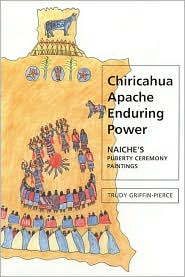
Went to the
Denis Johnson UA Poetry Center
reading tonight, he was signing books and he signed
Jesus' Son for me. Really great reading---he was just so funny and charming. He read from his new noir "shoot-em-up" novel,
Nobody Move, which apparently started out as a
serial for
Playboy.
Also read a poem from
The Incognito Lounge, at the request of several audience members. (He seemed pleased, and joked that Tucson is the only town where people have heard of that book.)
I'm actually brand new to Johnson's work. I'm taking a community college fiction workshop one night a week, and "Car Crash While Hitchhiking" was the first story we read. I was intrigued by it, by the fragmentation and especially by the way it ends---really strange and beautiful. So now I'm looking forward to reading the other stories in
Jesus' Son.
I wrote a little post-it note with my name on it, but then when I got to him there was nobody there to tell me what to do, and I didn't know if it would be rude to just hand the book to him with the post-it note on the cover---I didn't know if he was signing with names or just signing---so I just handed it to him without the post-it note. And he signed it, but not with my name, which is a little bit sad, but mostly just awesome.
Will write more later, it's almost my worknight bedtime.
 Update 4/10
Update 4/10:
So, I was jotting things down in my notebook during the reading, mostly all the funny offhand remarks and one-liners. Also the Q & A stuff. Here are some random "quotes" from what I wrote down---please be aware that even though I tend to try to try to write this kind of stuff down verbatim, really it's only as verbatim as I could manage while keeping up (and while still being able to enjoy the reading.)
Consider these to be paraphrases, quotation marks be damned.
He'd been "trying to write a novel with no hope of redemption," and had wanted
Nobody Move to be that novel. Is that how it turned out?
When he decided to start writing noir, he did some research, and re-read a lot of Raymond Chandler, including Chandler's writing advice: "When in doubt, have a person walk through the door with a gun."---Of
Nobody Move, Johnson says: "That happens like eight times in Part One, so in Part Two they have to be naked."
Johnson also mentions that he thinks "Chandler was actually kind of a prude, who lived with his mother most of his life."
Towards the beginning of the reading, Johnson takes a drink from his water bottle. "This," he says, bottle in hand, "will be the signal that we're at a section break." Cue laughter.
"I feel compelled to sum up the plot for you, but I think you get it." We laugh---so far it's been a lot of lying about names and intrigue about who shot who and for how much money.
Cell phone rings in the crowd. "If
only," Johnson says. He slaps the podium. "If only you'd timed that for when the phone rings in his pocket!"
Johnson pauses mid-sentence, makes notes. "Excuse me, I'm doing a little editing.
Nobody [he says in an overblown tone of voice, for comical effect] edits my stuff except me."
He slips up reading. "Damn it." He pauses. "You know, these are my words." We laugh. "And this is my mouth. Theoretically, there shouldn't be any problem."
He says he likes to ask audiences this question: "What's the difference between a nautical mile and a land mile?" He says nobody's ever had the answer. Some guy in the audience says, "1.3." (He sounds very serious about it. I don't believe him.)
Someone asks if
Jesus' Son was autobiographical. "About half of it happened to me and about half of it happened to people I knew," Johnson says. "I don't think any of it didn't happen to somebody. It's either autobiographical or it's stolen."
Someone asks if he had any role in the film adaptation. Johnson says he wrote remarks on the screenplay, and about a 3 page expansion specifically for the film. Apparently the filmmakers had wanted to add a scene or two not found in the book, but had felt "too reverent towards the material" to mess with it themselves. So Johnson wrote the pages. And onscreen, Johnson "was the guy with the knife in his head."
Someone asks if it's true that Jesus' Son started out as a collection of poems. Johnson says no, except kind of, only for the story "Car Crash While Hitchhiking." (That was the first story we read in the night workshop I'm taking this semester.) He says he "started writing a poem, finished it and sent it in, and the minute after mailing it, realized it should have been a story." The poem got accepted, and he had to tell the journal he didn't want them to publish it. Then he wrote it as "Car Crash While Hitchhiking."
Someone asks what inspired him to write noir? Johnson mentions reading Chandler. About the process of writing this book, Johnson mentions reading up on Hemingway's ideas about economy, about "writing tight." He mentions reading Chekhov. "In probably about another two weeks I would've evolved past the ability to write this thing. I would've ended up going to a monastery or something."
He mentions Paul Kane, a 1930s screenwriter who wrote only one book,
Fast One, which was put together out of things published in
Black Mask magazine. The book had "nothing internal at all," Johnson says. "You only see the characters from the outside. Because Kane was a screenwriter."
Small Boys, Liberia 1992: Someone asks if he plans to write more of the "journalistic traveling war stuff." Johnson says he went to northern Iraq a couple of years ago and did an article for
Portfolio magazine, but he has no plans to do any more of that.
NOTE: The following, in this paragraph, IS verbatim, or very close to it. I transcribed it from the crappy iPod audio recording I made: "It just got old," he says. "The same thing over and over again. Figure out some way of getting into a place, finding someone to show you what's going on. This person is risking their life, you know to get the word out about their cause, you know, the plight of their people. Then after about two or three weeks you say---"So long, buddy." You know, just flush it down the toilet and go home. It had just gotten old, it really did, and I just couldn't do it anymore."
"This," he says, and points to the book (
Nobody Move). "There's not a lot of literature in there. But I really enjoyed crafting it. And in that sense it's the most literary thing I've ever written. And the end, if you get to the end, I mean, it's not the way a shootemup is supposed to go."
Someone asks: "What are you working on now?" And Johnson says, "Nothing." He laughs. "I woke up about 6 months ago and I just didn't give a shit. And it's been like that ever since. It's not writer's block, I just don't give a shit." Someone asks, "Is it liberating?" And Johnson says that mostly it's just boring. That he's just sitting around the house "waiting for the next chapter to come."
"Which of your books are your favorites?" someone asks. (I think this question is in really poor taste, but hey, it's still interesting.) Johnson lists off:
The Incognito Lounge,
Angel,
Jesus' Son and
Tree of Smoke.














































